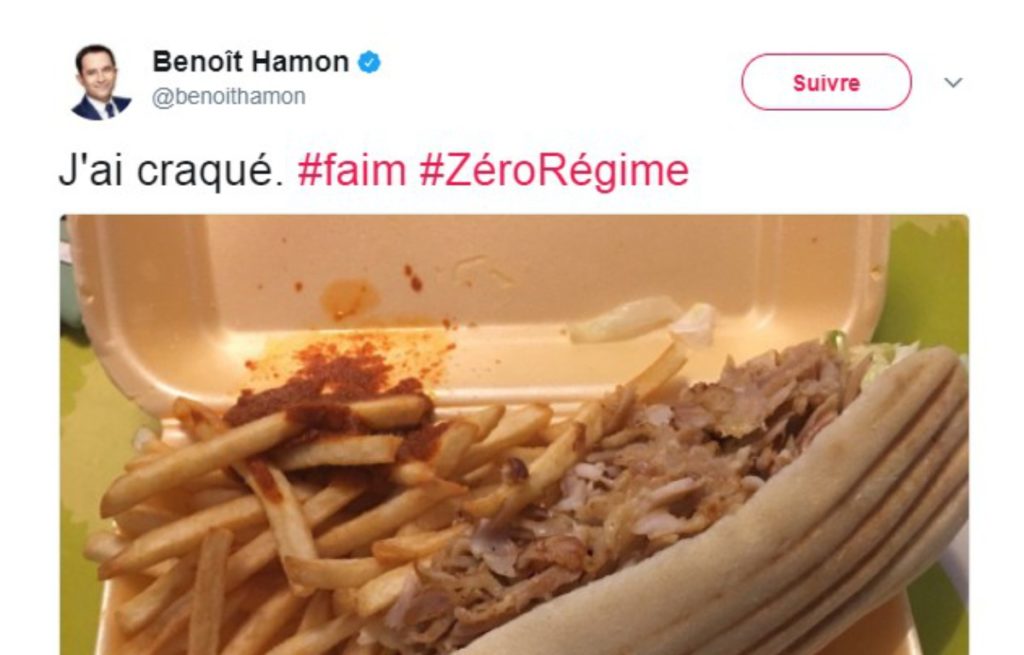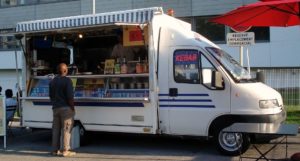That term, “gastronomic racism” was used by Rim-Sarah Alouane, a researcher at the University of Toulouse, to describe a crackdown on street vendors of kebabs in the city of Marseille. In France, a kebab is a sandwich in pita or flatbread filled with meat, usually mutton, with salad and sauces. The city is making it harder for owners of kebab shops to be licensed to operate in the central business district. According to the story on PRI’s The World: “Although kebab shops are not singled out, the owners of the establishments fear the initiatives will effectively force the entrepreneurs to shutter.” The owners of those establishments are overwhelmingly North Africans, most of them Muslims.
This is not the first time that kebabs have been involved in issues around immigration and discrimination. According to the story, “A stall at the 2013 annual convention of the far-right Front National called for ‘Ni kebab ni burger, vive le jambon-beurre.’ That means, ‘Neither kebab nor burger, long live the ham and butter sandwich,’ the classic French fast food — a baguette with ham and butter.” In the recent presidential election campaign, the Socialist Party candidate, Benoît Hamon, tweeted the following:
The tweet, “J’ai craqué”, literally, “I creacked”, means I gave in, namely to the guilty pleasure of eating a less than healthy snack, namely the kebab and fries shown.
France is not the only country where kebabs have entered the political arena. Chancellor Merkel has been pictured repeatedly with the popular German version, Döner Kebab. Her love of the Turkish street food has sometimes been seen ironically, in the context of her famous statement in 2010 that “Multikulti ist tot” (multiculturalism is dead). On the other hand, she has been celebrated with being out front in welcoming refugees into Germany. Given the large number of newly arrived Syrians in Germany, maybe in the future she will be pictured enjoying the Syrian version of the kebab, Kufta Kabab.
Story in The World:

